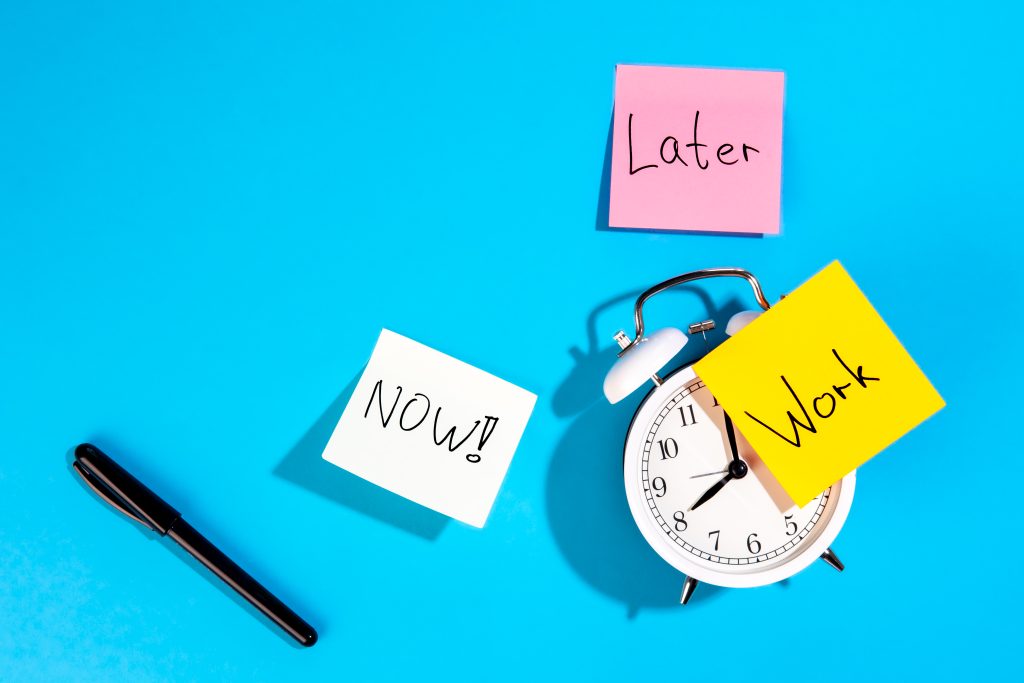Procrastination is often viewed as a negative behavior, something that hinders productivity and leads to stress. But have you ever wondered what your procrastination might be protecting? Recent research suggests that procrastination could be doing more for you than simply delaying tasks. In fact, procrastination might be protecting you from stress, burnout, and even perfectionism. This article will explore how procrastination might be serving as a shield, giving you time to rest, think, and make better decisions, ultimately leading to improved creativity and mental well-being.

The Complex Nature of Procrastination
Procrastination is often seen as the result of poor time management or laziness. However, the truth is more nuanced. Procrastination might be protecting us from negative emotions like anxiety and stress, or it might provide the mental space we need to make better decisions. Instead of labeling procrastination as a purely harmful habit, it’s important to consider how it might actually be serving a protective function.
1. How Procrastination Might Be Protecting Your Creativity
One of the most surprising ways procrastination might be protecting you is by enhancing creativity. When you procrastinate, you give yourself the mental break needed for your subconscious mind to process information. Research shows that delaying a task can lead to greater creative insights. This period of reflection allows you to come up with new ideas or solutions that you may not have considered if you were rushing to complete the task.
For instance, studies from the University of California have shown that students who procrastinated on their essays often produced more original ideas when they finally sat down to write. This suggests that procrastination might be protecting your creative process, providing time for deeper reflection and innovation.
2. Procrastination Might Be Protecting Your Decision-Making Process
Procrastination may also serve as a protective mechanism by giving you more time to make decisions. In today’s fast-paced world, we’re often pressured to make quick decisions, which can lead to errors or regrets. Procrastination allows you to delay your decision-making, giving you the mental space to gather more information, reflect, and ultimately make more informed choices.
Psychologist Timothy Pychyl emphasizes that procrastination can be an adaptive strategy when facing important decisions. It provides the time needed to evaluate all options before committing to a course of action, protecting you from impulsive decisions that could be detrimental.
3. Procrastination Might Be Protecting Your Mental Health
In our modern, fast-paced society, the pressure to be constantly productive can be overwhelming. Procrastination might actually be protecting your mental health by giving you a break. By delaying tasks, procrastination gives you the space to recharge emotionally, preventing stress and burnout. When we take time to rest, even if it’s through procrastination, we protect our mental well-being by avoiding exhaustion.
Research from the Journal of Behavioral Medicine shows that procrastination can be beneficial for emotional regulation. By taking breaks and allowing ourselves to delay tasks, we give our minds the opportunity to recover from stress, ultimately improving our emotional resilience and maintaining our overall mental health.
4. How Procrastination Might Be Protecting You From Perfectionism
Perfectionism can be a huge barrier to productivity. If you’re a perfectionist, the fear of not doing something perfectly may paralyze you from starting or completing tasks. In these cases, procrastination might protect you by giving you time to let go of the unrealistic expectations you place on yourself.
Instead of stressing over every detail, procrastination gives you the chance to accept imperfection and move forward. By postponing tasks, you may learn to embrace the idea that mistakes are a part of the process, and that perfection isn’t always necessary. Procrastination might be protecting you from the negative effects of perfectionism, allowing you to take action without the pressure of flawless results.
5. When Procrastination Becomes a Problem
While procrastination might offer protection in certain situations, it can also become problematic if it leads to chronic delays or prevents you from meeting deadlines. If procrastination starts interfering with important tasks, relationships, or responsibilities, it might be time to address it.
Understanding the difference between productive procrastination and harmful delay is key. If procrastination is causing negative consequences, it’s important to explore why it’s happening and take steps to manage it effectively.
Managing Procrastination: How to Strike a Balance
If you feel that procrastination is holding you back, there are several strategies you can use to manage it:
-
Break Tasks Into Smaller Steps: Large tasks can feel overwhelming, which leads to procrastination. By breaking tasks down into smaller, manageable steps, you can make them feel more achievable.
-
Set Specific Deadlines: Open-ended tasks are more likely to be delayed. Set firm deadlines to create a sense of urgency and accountability.
-
Use the “Two-Minute Rule”: If a task takes less than two minutes to complete, do it immediately. This helps eliminate small tasks quickly and prevents them from piling up.
-
Eliminate Distractions: Identify distractions that trigger procrastination, such as social media or multitasking, and remove them from your work environment.
Conclusion
While procrastination is often seen as an enemy of productivity, it may actually be doing more for you than you realize. Procrastination might be protecting your creativity, improving your decision-making, supporting your mental health, and shielding you from the harmful effects of perfectionism. By recognizing the protective benefits of procrastination and using it mindfully, you can make it work for you instead of against you.
Next time you catch yourself procrastinating, take a moment to consider how it might be helping you before you dive into your task. Use procrastination as an ally, but don’t let it take over your productivity. Striking a balance between mindful procrastination and action can lead to better outcomes in both your personal and professional life. By learning how to harness procrastination effectively, you can turn it into a tool for success, enhancing both your well-being and productivity.
References:
- ‘The Nature of Procrastination: A Meta-Analytic and Theoretical Review of Quintessential Self-Regulatory Failure.’ Psychological Bulletin 143(1), pp. 1-62. Available at: https://pubmed.ncbi.nlm.nih.gov
- Klingsieck, K. B. (2013) ‘Procrastination and Health: A Review of the Literature.’ European Psychologist, 18(2), pp. 80-93.
Available at: https://econtent.hogrefe.com - Van Eerde, W. (2003) ‘Procrastination: Self-regulation in activating and completing tasks.’ Applied Psychology, 52(3), pp. 372-395.
Available at: https://onlinelibrary.wiley.com









